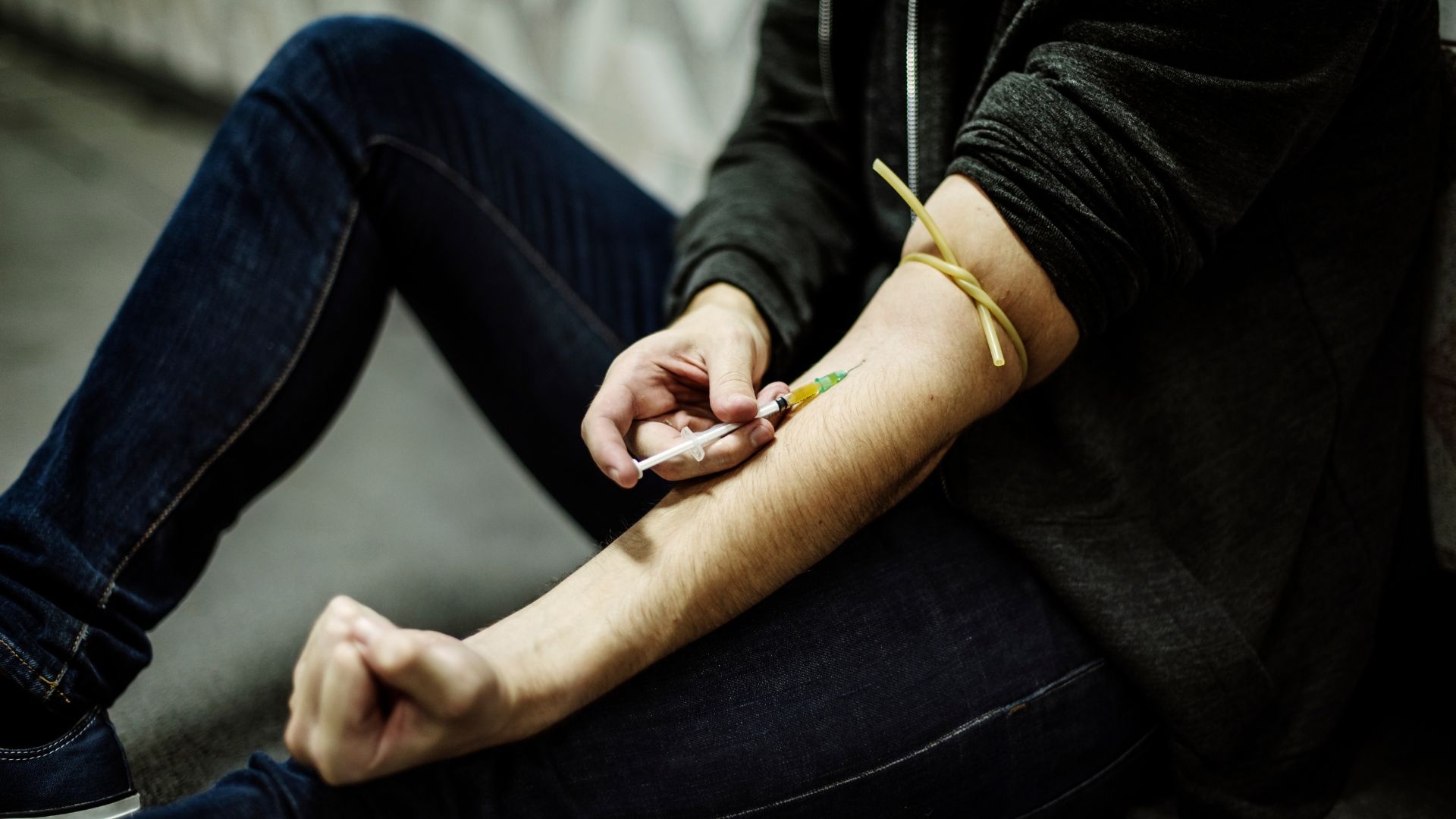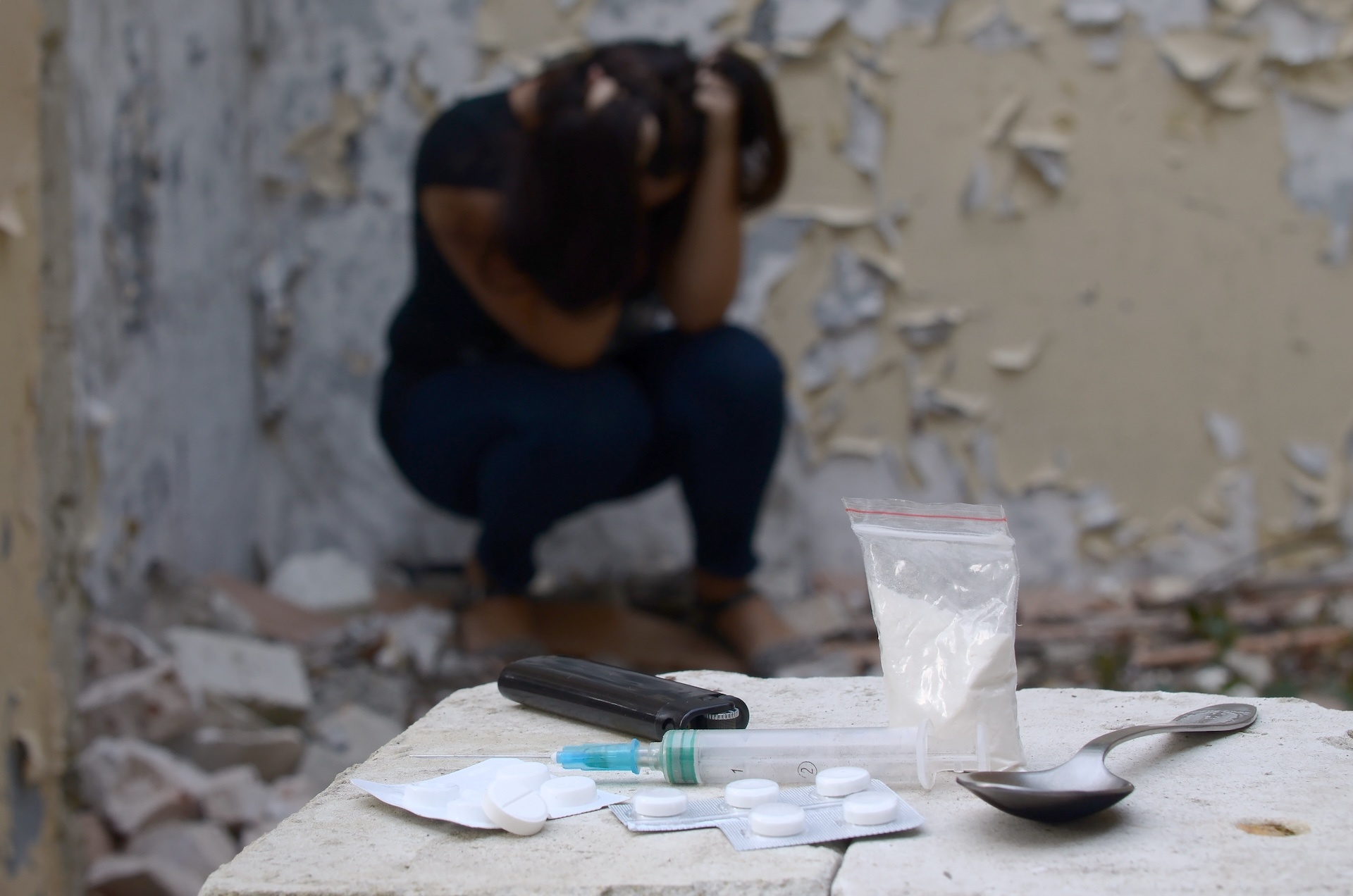Heroin Addiction Symptoms: What to Look Out For and How to Seek Treatment


Learn to identify heroin addiction symptoms and find out how to seek treatment. Essential guidance for awareness and recovery.
Heroin addiction is a complex and devastating condition that affects countless individuals and families. Recognizing heroin addiction symptoms early can make a significant difference in recovery outcomes, giving you or your loved one the chance to seek help before the effects become overwhelming. From physical signs to behavioral changes, knowing what to look for is essential in understanding the grip of this addiction.
At The Forge Recovery Center, we’re committed to providing compassionate, personalized support for those struggling with addiction and mental health challenges. In this article, you will learn about the key symptoms of heroin addiction, associated risks, and how to pursue effective, life-changing treatment options.
Understanding Heroin Addiction
Heroin addiction is a complex condition that profoundly affects both the brain and body. Gaining insight into how heroin impacts your system and the progression from initial use to dependency is crucial for recognizing the signs and seeking appropriate help.
What Is Heroin and How Does It Affect Your Brain and Body?
Heroin is an opioid derived from morphine, a substance extracted from the opium poppy plant. It typically appears as a white or brown powder or a black, sticky substance known as black tar heroin. When you use heroin, it rapidly enters your brain, converting back into morphine and binding to opioid receptors. This interaction triggers a surge of dopamine, leading to intense feelings of euphoria and relaxation.
Beyond the immediate "rush," heroin use can cause:
Respiratory Depression: Slowed breathing, which can be life-threatening.
Central Nervous System Effects: Drowsiness, clouded mental functioning, and, in some cases, unconsciousness.
Gastrointestinal Issues: Nausea, vomiting, and constipation.
Repeated use alters the brain's physical structure and physiology, creating long-term imbalances in neuronal and hormonal systems that are not easily reversed.
The Path From Initial Use to Dependency
The journey to heroin addiction often follows a progression:
Experimentation: You might try heroin out of curiosity, peer pressure, or as a means to cope with stress or emotional pain.
Regular Use: As you continue using heroin, your body builds tolerance, requiring more of the drug to achieve the same effects.
Dependence: Your brain adapts to the presence of heroin, leading to physical and psychological dependence. Without the drug, you may experience withdrawal symptoms such as restlessness, muscle and bone pain, insomnia, diarrhea, vomiting, and cold flashes.
Addiction: At this stage, seeking and using heroin becomes a compulsive behavior, despite the negative consequences on your health, relationships, and responsibilities.
Understanding this progression underscores the importance of early intervention. If you or someone you know is experimenting with or regularly using heroin, it's crucial to seek professional help promptly to prevent the development of dependence and addiction.
Physical Symptoms of Heroin Addiction
Recognizing the physical symptoms of heroin addiction is crucial for early intervention and effective treatment. These symptoms can be categorized into short-term and long-term effects, each impacting your health in significant ways.
Short-Term Effects

When you use heroin, it rapidly affects your body, leading to immediate physical changes:
Euphoria Followed by Drowsiness: Initially, you may experience an intense rush of pleasure, which is often followed by a state of drowsiness or "nodding off."
Dry Mouth and Flushed Skin: Heroin use can cause your mouth to feel dry and your skin to appear warm and flushed.
Nausea and Vomiting: It's common to feel nauseous or to vomit shortly after using heroin.
Severe Itching: Many users report intense itching, leading to scratching that can result in skin damage.
Long-Term Effects
Chronic heroin use leads to more severe health complications over time:
Collapsed Veins (from Injection): Repeated injection can damage your veins, causing them to collapse and making future injections difficult.
Infections of the Heart Lining and Valves: Using non-sterile needles or injecting impure substances can introduce bacteria into your bloodstream, leading to serious heart infections like endocarditis.
Liver and Kidney Disease: Heroin use can cause long-term damage to your liver and kidneys, impairing their ability to function properly.
Respiratory Complications: Chronic use can lead to lung issues, including pneumonia and tuberculosis, due to a weakened immune system and the drug's depressive effects on breathing.
Understanding these physical symptoms is essential for recognizing heroin addiction in yourself or others. Early detection and seeking professional help can prevent the progression of these health issues and support recovery.
Are You Struggling with Mental Health or Addiction?
We Can Help. Call Us Now!
CALL: 877-839-1772
Behavioral and Psychological Symptoms of Heroin Addiction
Heroin addiction profoundly affects both behavior and mental health. Recognizing these changes is crucial for early intervention and effective treatment.
Behavioral Changes
Neglect of Responsibilities: Individuals may begin to neglect duties at work, school, or home, leading to declining performance and potential disciplinary actions.
Social Withdrawal: There's often a noticeable retreat from social engagements, hobbies, and relationships, as the addiction consumes more time and focus.
Secretive or Suspicious Behavior: To conceal drug use, individuals might exhibit increased secrecy, such as lying about whereabouts or activities, and may become defensive when questioned.
Psychological Changes

Intense Cravings: A hallmark of addiction is the overwhelming desire to use heroin, making it challenging to focus on anything else.
Anxiety and Depression: Chronic heroin use can lead to or exacerbate mental health issues, including persistent feelings of sadness, hopelessness, and heightened anxiety.
Mood Swings and Irritability: Individuals may experience rapid mood changes, from euphoria to irritability or aggression, often without clear triggers.
Cognitive Impairments: Long-term use can impair cognitive functions, leading to memory loss, difficulty concentrating, and challenges in decision-making.
Recognizing these behavioral and psychological symptoms is essential for identifying heroin addiction. Early detection and seeking professional help can prevent further deterioration and support recovery.
Risks Associated with Untreated Heroin Addiction
Neglecting to address heroin addiction can lead to severe health complications, increased risk of fatal overdose, and significant social and economic challenges.
Increased Risk of Infectious Diseases
Sharing needles or using non-sterile injection equipment significantly raises the risk of contracting blood-borne infections such as HIV and hepatitis B and C. These infections can lead to chronic health issues, including liver disease and compromised immune function.
Higher Likelihood of Overdose and Fatal Respiratory Depression
Heroin depresses the central nervous system, slowing breathing and heart rate. Overdose can result in respiratory failure, coma, or death. The risk is heightened when heroin is mixed with other substances or when tolerance levels fluctuate, such as after a period of abstinence.
Social and Economic Consequences
Untreated heroin addiction often leads to:
Legal Issues: Engaging in illegal activities to obtain the drug or due to impaired judgment can result in arrests and incarceration.
Financial Instability: The cost of sustaining an addiction can deplete personal finances, leading to debt and loss of assets.
Relationship Strain: Addiction can erode trust and communication, causing rifts with family and friends.
Employment Challenges: Neglecting work responsibilities or exhibiting erratic behavior can lead to job loss and difficulty securing future employment.
Addressing heroin addiction promptly is crucial to mitigate these risks and support recovery.
Are You Struggling with Mental Health or Addiction?
We Can Help. Call Us Now!
CALL: 877-839-1772
Seeking Treatment for Heroin Addiction
Overcoming heroin addiction is a multifaceted process that involves medical intervention, behavioral therapies, and robust support systems. A comprehensive treatment plan tailored to your specific needs can significantly enhance the likelihood of sustained recovery.
Detoxification
Detoxification is the initial step in treating heroin addiction, focusing on safely managing withdrawal symptoms as your body eliminates the drug. Medical supervision during detox is crucial to monitor health, alleviate discomfort, and address any complications that may arise.
Attempting detox without professional guidance can be dangerous due to the severity of withdrawal symptoms, which may include agitation, muscle aches, insomnia, and gastrointestinal distress.
Medication-Assisted Treatment (MAT)
MAT combines FDA-approved medications with counseling and behavioral therapies to treat substance use disorders. For heroin addiction, medications such as methadone, buprenorphine, and naltrexone are commonly used:
Methadone: A long-acting opioid agonist that reduces cravings and withdrawal symptoms, allowing you to focus on recovery.
Buprenorphine: A partial opioid agonist that diminishes withdrawal symptoms and cravings with a lower risk of misuse.
Naltrexone: An opioid antagonist that blocks the euphoric effects of heroin, discouraging relapse.
These medications are most effective when integrated into a comprehensive treatment plan that includes behavioral therapies.
Behavioral Therapies
Behavioral therapies are essential in addressing the psychological aspects of addiction:
Cognitive-Behavioral Therapy (CBT): CBT helps you identify and modify negative thought patterns and behaviors associated with drug use, equipping you with coping strategies to handle triggers and prevent relapse.
Contingency Management: This approach provides tangible rewards for positive behaviors, such as maintaining sobriety, reinforcing your commitment to recovery.
Support Systems
Engaging with support systems is vital for long-term recovery:
Support Groups: Organizations like Narcotics Anonymous offer peer support through regular meetings, providing a sense of community and shared experiences that can be instrumental in maintaining sobriety.
Family Therapy: Involving family members in therapy sessions can help rebuild trust, improve communication, and address any familial issues contributing to the addiction, fostering a supportive home environment conducive to recovery.
At The Forge Recovery Center, we offer personalized treatment plans that integrate these components, ensuring a holistic approach to overcoming heroin addiction. Our dedicated team is committed to supporting you through every step of your recovery journey.
Recognizing Heroin Addiction Symptoms? The Forge Recovery Center Is Here to Help
Early recognition and intervention are crucial in addressing heroin addiction effectively. If you or a loved one is experiencing symptoms of heroin addiction, seeking professional help promptly can make a significant difference. At The Forge Recovery Center, we offer personalized treatment plans tailored to your unique needs, providing the support necessary to overcome addiction and reclaim your life. Remember, recovery is possible, and taking the first step toward help is a courageous and vital decision.
Are You Struggling with Mental Health or Addiction?
We Can Help. Call Us Now!
CALL: 877-839-1772





